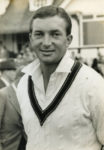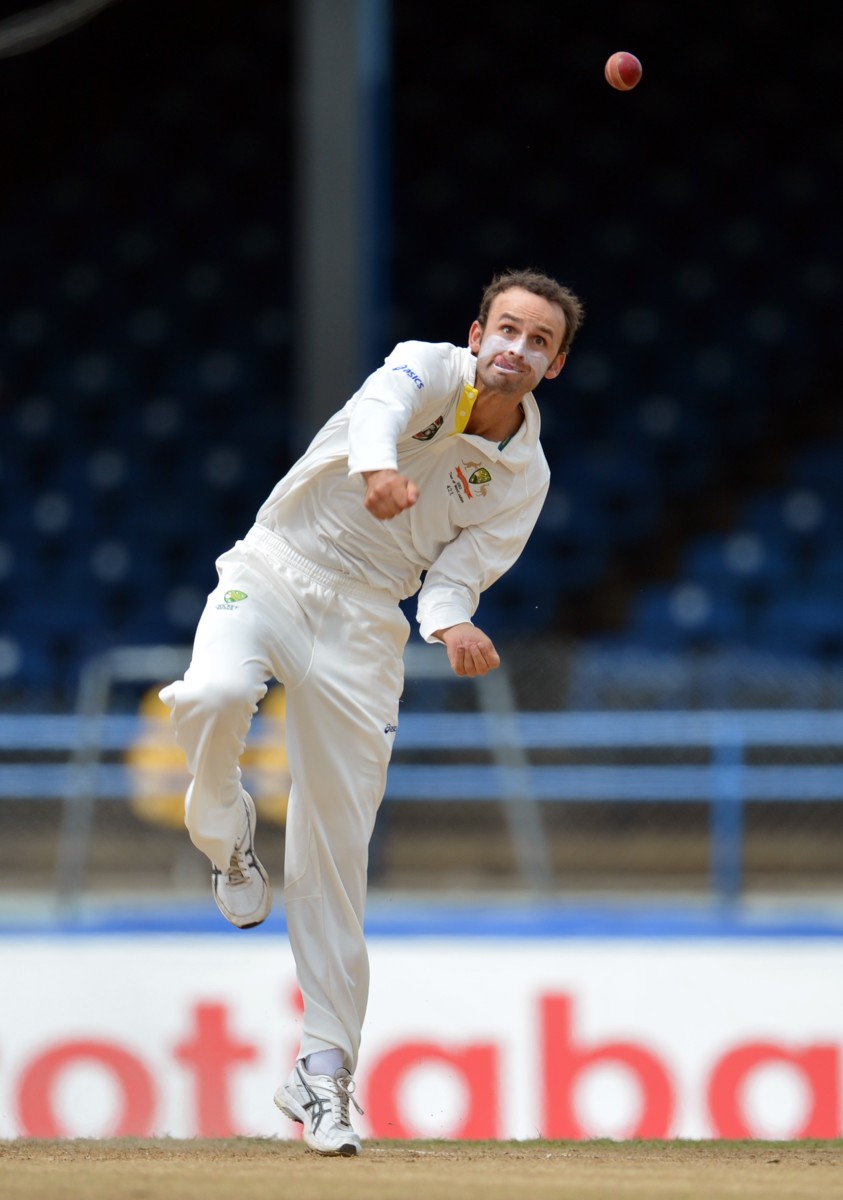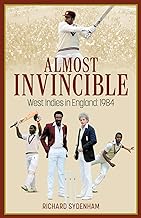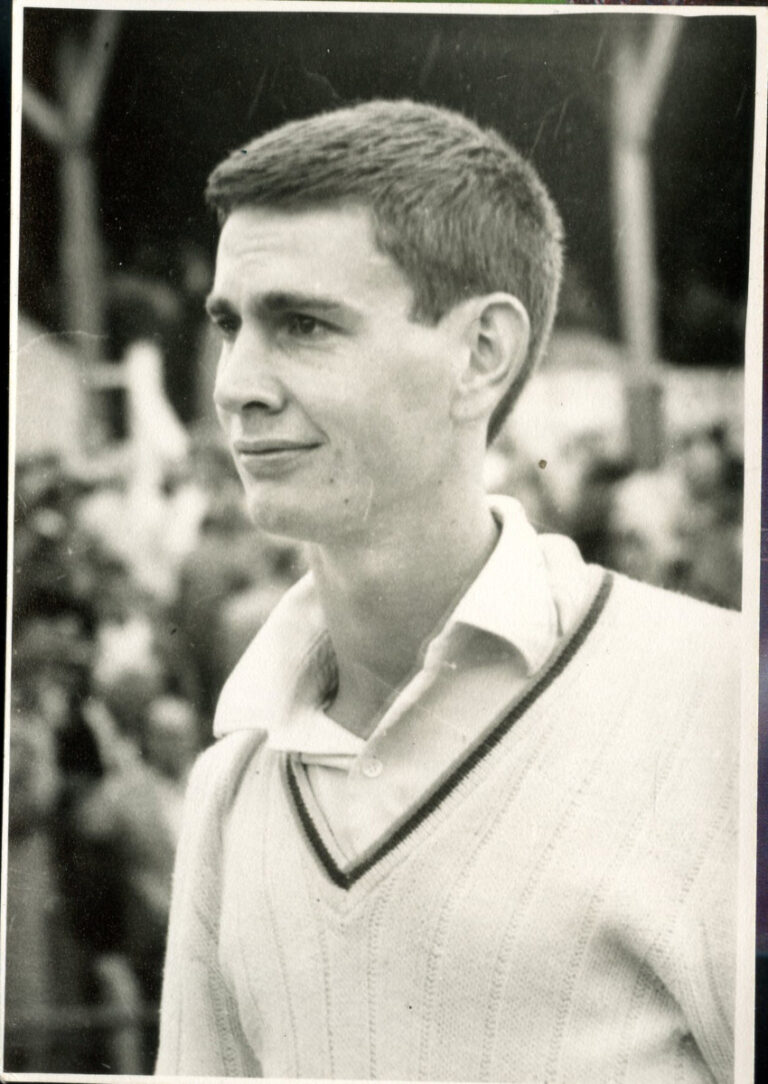
News
Remembering Richie at Old Trafford in ’61
In the most magical hour of his stellar career, Australia’s inspirational captain takes five wickets in 25 balls as Australia miraculously retains the Ashes… excerpts from Heroes of the Hour…..
Throughout almost all of his celebrated captaincy reign Richie Benaud dared to be different. He had the King Midas touch, his inspired leadership reinvigorating Test cricket and returning Australia to world champion status after an uncharacteristic slump in the mid-‘50s. Captain by chance1 Benaud proved to be an instinctive leader with personality, warmth, vision — and a gambler’s good luck.
 On tour he instigated regular match-eve team dinners and press conferences sharing information and spreading goodwill with travelling journalists so they were rarely short of a news story or an ‘angle’, even on non-match days. Fringe players were given every opportunity in county games. Benaud set attacking ‘Keith Carmody’ type fields,2 always looking to take full advantage of an early edge. Often they would be placed in a ‘U’ formation behind the bat with only a mid-on and a mid-off for initial front-of-the-wicket protection.
On tour he instigated regular match-eve team dinners and press conferences sharing information and spreading goodwill with travelling journalists so they were rarely short of a news story or an ‘angle’, even on non-match days. Fringe players were given every opportunity in county games. Benaud set attacking ‘Keith Carmody’ type fields,2 always looking to take full advantage of an early edge. Often they would be placed in a ‘U’ formation behind the bat with only a mid-on and a mid-off for initial front-of-the-wicket protection.
His stellar moments as cricket’s master leg spinner had come from 1957 when he perfected his famed flipper which skidded through low at pace, clouding judgements and triggering a spate of lbws.
Having recaptured the Ashes in his first series as captain in 1958-59 — and taken 31 wickets in five Tests, the most ever by a captain — he was instrumental in the greatest Test series of the era in 1960-61, the fabled Calypso summer. But his finest moment was still to come in 1961, an Ashes tour where he was so plagued by shoulder problems that for weeks he could shave only with his left hand and was forced to stand down at Lord’s, the Test everyone loved to play.
Coming to the fourth Test at Old Trafford, the score-line was 1-1 and the Manchester weather murky. It was a toss Benaud was dreading to win, but having called correctly, he elected to bat and the Australians, after a lengthy rain delay, collapsed for 190 and conceded a big lead. Thanks to a second innings century from the find-of-the-tour Bill Lawry — a knock he rates as the most significant of his career — and a thrilling late-order stand between Alan Davidson and rookie Graham McKenzie, Australia was able to set England a decent fourth innings target of 255 at 66 runs an hour. The match fortunes had seesawed yet again and in the rooms a pumped up Davidson declared: ‘We’ll do these jokers, Rich’.3
Not everyone agreed. Lindsay Hassett reckoned the odds on an Australia win were at least 6/1. He felt the best Benaud and Co. could hope for was a draw.4
England’s top-order included three of world cricket’s most-acclaimed in Ted Dexter, captain Peter May and Ken Barrington, plus the cool-and-calm Raman Subba Row, one of world cricket’s steadiest openers.
In an hour of superlative strokeplay Dexter wrenched the initiative back from the Australians with a command performance, the most remembered hour-and-a-quarter of his career. He made 76 in all but even time, striking 14 4s and one 6. It was a magnificent knock.
Benaud had conceded 100 runs for the match without taking a wicket. But the Old Trafford wicket, especially the footmarks created early by Freddie Trueman, was becoming increasingly worn, favouring the spinners. Benaud had chatted pre-match with Test great Ray Lindwall about varying his tactics and exploiting the footmarks by coming around the wicket later in the game and deliberately aiming at the rough. It could create a wicket or two. It may also conserve some runs. Lindwall was wary. Fine for the left-handers, he said, but anything remotely loose against the right-handers could be costly.5
Thanks to Dexter’s extraordinary onslaught, a little more than 100 runs were required. The Australians were in free-fall. In one of several mid-pitch meetings with Harvey leading into the tea break, Benaud conceded Australia no longer could hope to force a draw. ‘We’ve had it as far as saving this “Nin”,’ he said. ‘The only way we’ll get out of it is to win.’6
Hoping to pitch the ball in the bowler’s footmarks, Benaud went around the wicket, creating a different angle. Dexter responded by imperiously crunching two fours through the offside at the speed of sound. He was like a runaway train; unstoppable. Thanks to an hour of Dexter brilliance, England was now committed to going for the win.
At the change of overs, Benaud told ‘keeper Wally Grout that had to somehow dismiss Dexter — or Australia could kiss the game goodbye. Dexter was on strike as Benaud continued. Again he was persisting with his around the wicket attack. He had an unstoppable belief and optimism. After five consecutive ‘dot’ balls, Benaud delivered a top-spinner with some extra bounce. It was pitched a little shorter and aiming an extravagant thrash through the off side, Dexter was caught off the top edge by a gleeful Grout. It was 3.45 p.m.
Enter May, the leading batsman in the game, a strokemaker with infinite time, class and polish. England needed only 106 and had eight wickets in hand. May felt honour-bound to press on and maintain the run-rate. Benaud’s first ball, a leg-spinner, straight at leg stump and with hardly any spin was easily defended. The second was pitched wider and May went for a sweep only to miss the ball and in an instant hear the dreaded click of ball hitting wicket. A Benaud yelp of joy confirmed May had been bowled directly out of the foot-holes. It had turned, big-time. May stood momentarily at the crease. ‘Sorry mate,’ said Harvey at leg slip, ‘you’re out’.7
May was later to term his dismissal ‘ignominious’.8
Never could he recall being dismissed sweeping before. It was a shot he rarely, if ever, played.
The match fortunes were changing, markedly. Brian Close, in at five in his first Ashes Test in a decade, struck out wildly at his first ball and it splayed over short fine leg’s head for a fortunate two. It seemed he was trying to sweep everything, pitching full before he advanced at a wider one from Benaud and struck him straight back down the ground for a soaring 6. The Old Trafford crowd was ecstatic. The target was now less than 100. Within minutes, however, another cross-the-line swipe landed in the hands of the reliable Norm O’Neill just backward of square leg.
In 25 deliveries Benaud was to take five for 12. According to author Patrick Ferriday even Shane Warne could not have done it better.9 By 5.40 p.m. — 20 minutes before the scheduled close — England was bowled out for 201, Davidson finishing the game by knocking back Brian Statham’s off stump. In a lifetime in the game, it remained the sweetest moment of all for Benaud. ‘For four and three-quarter days,’ said Alan Ross in the Observer, ‘England had asserted a basic all-round superiority. Yet within the space of an hour, the Ashes and the match was wantonly thrown away.’10
Under fire, Benaud had shown tremendous tactical acumen and courage to implement his plans. Before the age of Warne, leg-spinners rarely bowled from anywhere but over the wicket. ‘It was a tremendous win by Australia, a lasting tribute to Richie’s enterprise,’ said May.11
There had been continuing concerns about Benaud’s fitness entering the match. Yet he had triumphed at the most critical time. The Ashes had been whisked from England’s grasp in half a session. It remains one of the most remarkable of all Ashes contests.
- Afterwards the Australians agreed it was among the most gripping Ashes Tests ever played. ‘Benaud’s captaincy was outstanding and his bowling absolutely courageous,’ said opening batsman and touring selector Colin McDonald.12 The final Test at The Oval was drawn, ensuring Australia the series 2-1. The 1961 UK summer was the happiest of Benaud’s cricket career. On retirement in 1964, his 248 Test wickets was an Australian record, his wickets having come at an average of 3.5 per Test in Australia and 4.2 overseas. Heroes of he Hour is $49.95 posted anywhere within Australia






